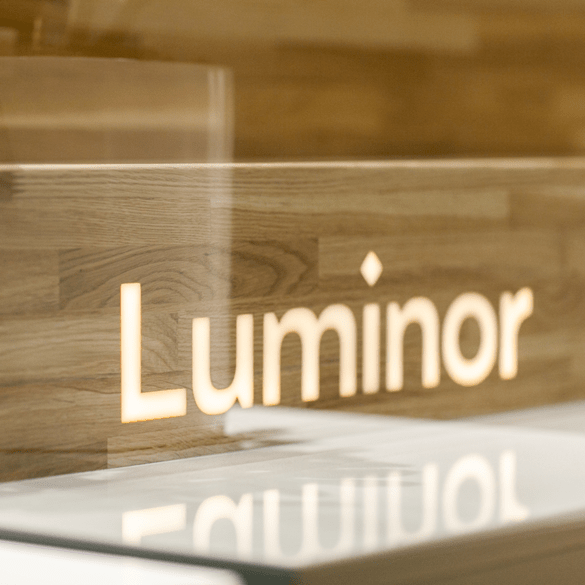Luminor announces its 2Q24 results | Luminor

Luminor reported growth in loans to customers, reduced expenses, and improved loan book quality in 2Q24, while maintaining strong liquidity and capital positions.
In Retail Banking, enhancements made to customer offerings and process efficiencies led to growth in new lending. Corporate Banking saw continued demand for investment in the renewable energy sector, and launched its new customer offering to facilitate additional lending for Baltic SMEs and support the green transition, backed by the European Investment Bank.
For the quarter, Luminor generated a pre-tax profit of 60.5 million EUR, slightly lower than the same period last year. A 7.8 million EUR reduction in operating income, due mainly to a decrease in net other operating income, was offset in part by a 5.6 million EUR reduction in administration expenses following the elimination of consultancy costs. IT-related expenses increased by 7.1% as Luminor continued to improve its systems and processes. Expected credit losses decreased by 4.4 million EUR, while bank taxes and resolution fee increased by 3.9 million EUR, due primarily to the temporary bank tax in Latvia. Profit for the period of 45.1 million EUR was 15.1% lower, following amendments to the Latvian corporate income tax law which drove a near 70% increase in tax expense.
“This year brings a gradual recovery for society from the economic challenges that have hit the world in recent years. We are seeing a gradual increase in lending – compared to the first three months of this year, total lending in the second quarter increased by more than 40 million EUR to 2.88 billion EUR. However, businesses remain cautious, as reflected by the stagnating corporate lending and the sentiment of SMEs, which we recently measured in the bank’s survey. Businesses remain concerned about the impact of inflation, price changes and job retention, and these concerns are preventing them from actively investing in business development. Although the housing market in Latvia is falling behind neighbouring countries, we see that people are gradually becoming more active – in the first 6 months of this year we have granted 30% more loans to private individuals than in the same period last year. Overall, the outlook for the future is becoming more hopeful: inflation has stabilised, while the Euribor rate, although slower than expected, is falling. This gives hope that economic growth will continue in the future, not only because of retail lending, but also because businesses will become more confident and refocus on development and investment,” says Kerli Vares, Head of Luminor Bank in Latvia.
Luminor recorded a net interest margin of 3.56%, reduced its cost-to-income ratio to 54.6%, and generated an annualised Return on Equity of 10.2%. The quality of the bank’s loan book improved. The gross carrying amount of loans that had seen significant increase in credit risk and credit-impaired loans reduced by 102.1 million EUR over the quarter. Luminor’s liquidity and capital positions remained strong, with a Liquidity Coverage ratio of 201.8%, twice the regulatory minimum, and Common Equity, Tier 1, and Total Capital Ratios of 20.0%. Moody’s upgraded Luminor’s rating to A3 and its covered bonds to Aaa.
Wojciech Sass, Luminor Bank CEO, said: “In the second quarter our home markets of Estonia, Latvia, and Lithuania grew modestly. Despite this, through the considerable efforts of our employees, we grew our lending - to individuals and companies - and we enhanced the quality of our loan book. As compared to the second quarter last year we lowered our expenses. I am focused on three areas: to improve our value proposition for our customers; to streamline our IT for the benefit of our customers, and so be more efficient; and to be compliant with changing regulatory requirements. We will continue to work to become more efficient and grow our lending in line with customer demand.”
Luminor’s Q2 2024 interim report can be found here.
Luminor is the leading independent bank in the Baltics and the third-largest provider of financial services in our region. We serve the financial needs of individuals, families, and companies. Just like our home markets of Estonia, Latvia, and Lithuania we are young, dynamic, and forward looking.
